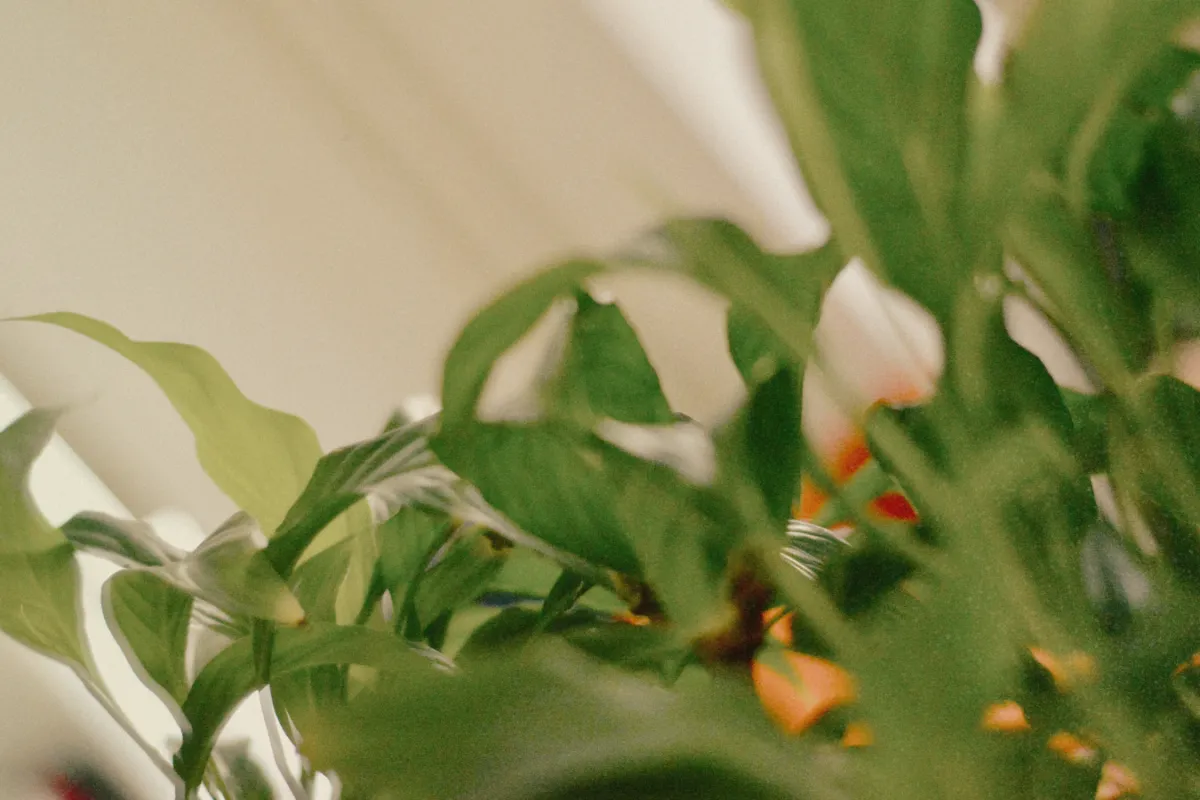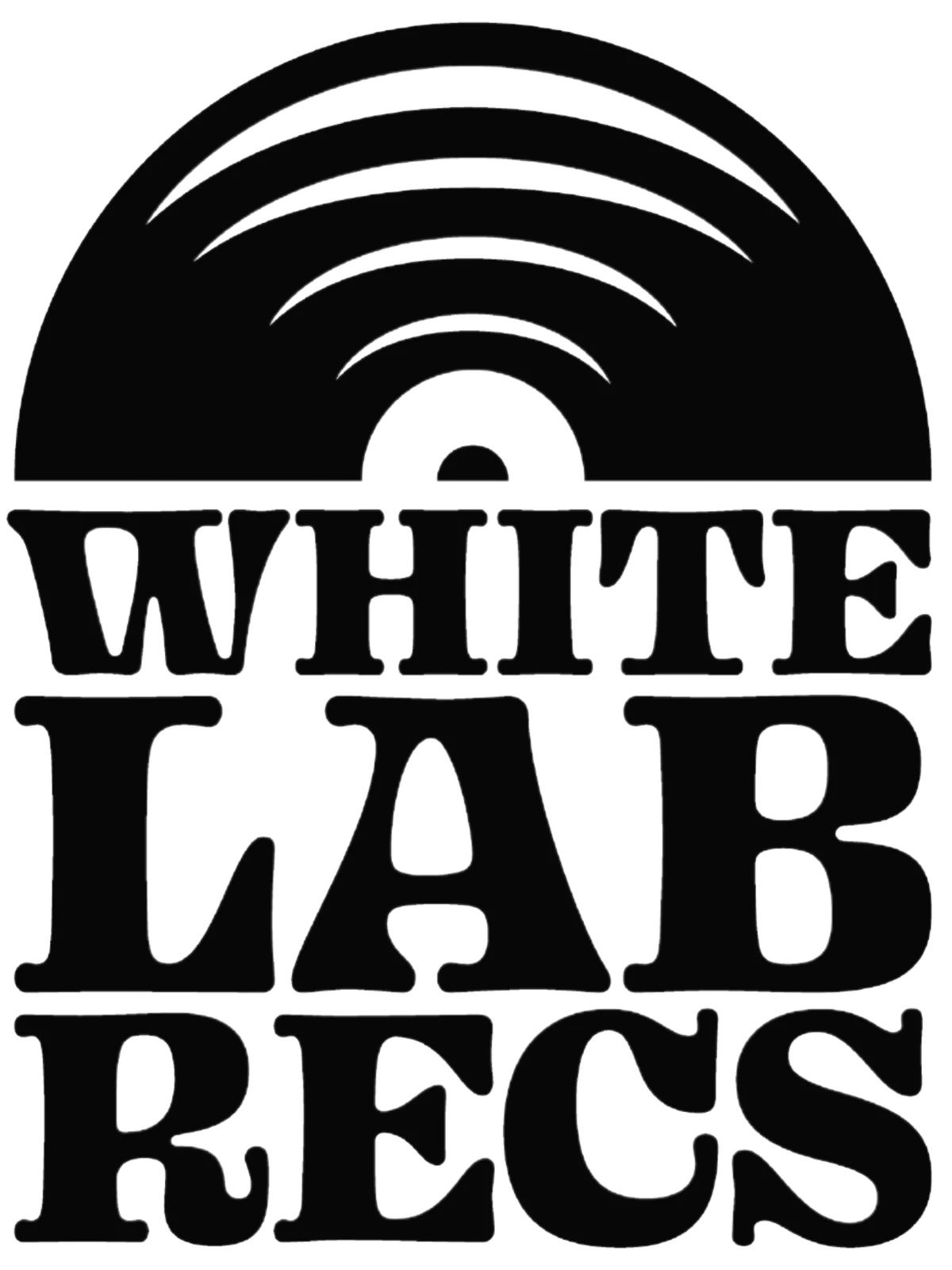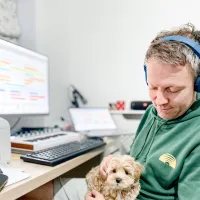Whitelabrecs Blog

Behind the Scenes With Alexis Delozanne
I had a chat with Paris based artist Alexis Delozanne who sent me some photos from in and around his studio as well as a shot from his neighbourhood in Paris. As part of the concept behind his recent album 'Acclimatation' Alexis shared how the plants and and the Jardin D'Acclimatation provided a backdrop for change in his personal circumstances; the birth of his son.
We decided to put together a blog post sharing these pictures and a few interview questions to learn more about this change, his plants, his studio set-up, field recording and what it's like to be an artist creating experimental music in Paris. If you'd like to check out some of Alexis' music you'll see an embedded Bandcamp player at the bottom of this blog where you can take a listen to his recent eRecord 'Acclimatation'.
HT: The concept for ‘Acclimatation’ is based around a shift in your personal life — the birth of your son. Can you tell us more about how this transition influenced your creative process or the mood of the album?
AD: Acclimatation was created after a period of major changes in my life, culminating in the biggest and happiest one: the birth of my son, Samson. The mood of the album reflects this, feeling more serene and "open," marked by long, repetitive sequences. While Presqu’île was focused on the past, with a more melancholic tone, Acclimatation is rooted in the present moment, trying to capture everything happening around me, much like a newborn observing the world with intense concentration.
HT: You mention ‘Acclimatation’ as being both a life phase and a reference to a Parisian garden. How did the garden and plants too, become a central theme to this project, and how do you feel your music reflects this dual meaning?
AD: After my son was born, I had much less time to devote to music. One day, I bought a small plant that I placed above my music setup, and it needed a little water every day. I often told my girlfriend that my approach to music needed to be the same now: giving it a little attention and care every day.
This idea of slow, steady nurturing naturally led me to think more about plants. Around the same time, I was reading In Search of Lost Time, which had a huge impact on me. One passage mentioning the Jardin d'Acclimatation caught my attention, and the symbolism felt perfect: a place of growth, adaptation, and wonder—much like this new phase of my life.
HT: Could you tell us a bit about the plants you have inside your home? What species are they? Are they a lot of work to maintain?
AD: I have a Spathiphyllum and a few types of ferns. They aren't very demanding, but it took me a long time to learn how to properly care for plants. I used to buy them because they looked nice in shops, but I'd quickly forget about them. Now I'm much better at taking care of them, and it's taught me a lot about perseverance and appreciating the slow, quiet rewards of daily attention.
HT: Paris is of course an urban environment. Does this have any impact on how you feel about and connect to the natural world?
AD: Over the past two years, Paris has become a growing source of inspiration for me. I used to associate nature only with the countryside or the seaside, not realizing that the act of observing nature could happen here too. Reading Proust’s descriptions of Paris helped me notice how much of the city's natural rhythms still persist today, even in our post-industrial era. The seasons continue, nature still finds its way through the cityscape. I live in the south of Paris, close to a large park and an abandoned railway where nature has reclaimed the space—it’s a beautiful and inspiring place.
HT: We can see some of your creative setup in these photos. Could you tell us what equipment you’re using and some of the techniques you use when making music?
AD: My Moog Matriarch is probably my favorite synth. It constantly surprises me with better ideas than I originally imagined. I especially love its paraphonic system across four oscillators. For instance, in Le Rêve de Samson (around 1’24"), when you play a chord in paraphonic mode, each note is assigned to a different oscillator. If you trigger all notes simultaneously, as you would with a sequencer, the assignment is random each time. By setting one oscillator an octave higher, the highest note of the chord shifts unpredictably, creating random chord inversions. It's one of the many magical possibilities with this synth.
I also use a Tascam Portastudio 424 a lot. I have it connected to my audio interface, with separate outputs for each input, making it a very versatile tool and helping me move away from being too software-dependent.
HT: Did you find yourself working in more compact or adaptable ways after becoming a parent? How did this constraint affect the final sound of Acclimatation?
AD: Definitely. I started working much more compactly than before. In 2022, with my band Antipodes, we developed a live project where we crafted songs using a limited setup to make live performances feasible. It was the first time I started a project by first thinking about instrument selection, and I loved the process. Since then, I’ve continued to reduce the number of instruments I use for each project.
After my son was born, we converted our living room into our bedroom, and I had far less space for gear. I shrank my setup down to what could fit on my desk. For Acclimatation, I really committed to a minimalist approach: I bought a four-track Portastudio and stuck to the four-track limitation, forcing myself to carefully choose every motif before moving on.
I really believe in the power of constraints in creativity. Albums like Four Folks (Jeff Parker), Music for Nine Postcards (Hiroshi Yoshimura), and For Anyone That Knows You (Josiah Steinbrick) have greatly influenced my love for minimalist setups.
HT: You have a Zoom handy recorder I see - where do you tend to capture your field recordings?
AD: Yes, I use field recording a lot in my music. For me, it acts as a kind of glue that holds the tracks together. It helps me think of the different parts as a cohesive whole, giving the music a unique identity tied to the place and time the recordings were made. For each album, I choose one specific place—or a conceptual framework—from which all the field recordings will be sourced.
For example, on Presqu'île, every track includes field recordings taken from the beaches that gave the songs their titles. On Acclimatation, I recorded everything inside my apartment to emphasize a more intimate, confined atmosphere. On the track Shubhangi, for instance, the intro comes from a recording made during a party at our place. I left the recorder in a separate room to soften the high frequencies, creating a muted, cosy feeling—that was exactly the mood I wanted for the album.
I like the Zoom H2n because it’s very easy to use. I usually just adjust the mic gain and start recording without spending too much time on settings—and often I end up with something interesting. I enjoy making long recordings of natural environments, but I’m also drawn to unexpected sounds, like the hums and buzzes of electronic devices that are usually considered annoying. The other day at the supermarket, I noticed a fridge that was malfunctioning and making a weird buzzing sound... I should go back and record it.
HT: What are your future plans beyond Acclimatation? Any new records or projects in the works?
AD: I'm currently finishing another record that was conceived as a follow-up to Acclimatation. It's a bit more rhythmic, with many compositions starting from improvised tom sequences and tune modulations.
Over the past few years, I’ve produced a wide range of material—some ambient, some leaning toward house and IDM. I'm now thinking about how to release these different projects in a coherent way. I’d like to release some of them as very limited cassette editions, to have a physical format for these tracks that are otherwise just sleeping on my (already obsolete) computer. I’m also considering launching a tiny label to gather and release some of these works, possibly including collaborations with other artists.
'Acclimatation' is available as a digital 'eRecord' release in a range of high quality format options, complete with a bonus PDF scrapbook. You can take a listen to the album in full or buy a copy HERE!
join the community...
get a free 12 track compilation album
be the first to hear the label news
get behind the scenes exclusives
a chance to get involved



